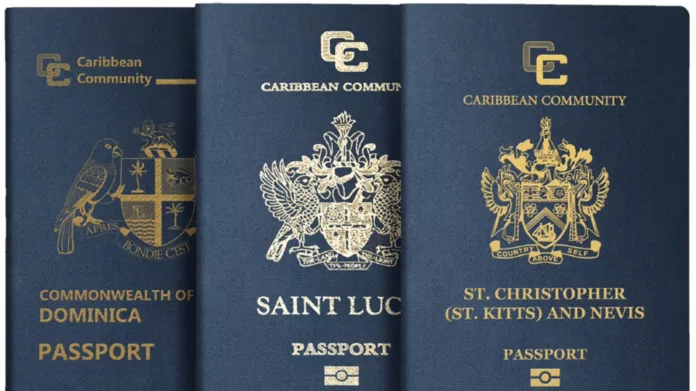Antigua and Barbuda’s Ambassador to Caricom has expressed concern that signing a regional pact on free movement among member states’ nationals could heap pressure on the twin island nation’s public services.
Currently, Caricom passport-holders are limited to spending six months in fellow Caricom countries without restrictions.
Last week, Barbados Prime Minister Mia Mottley announced that regional leaders were on track to free up movement by March 31 amid further implementation of the Caricom Single Market and Economy (CSME). She also said talks were underway to pave the way for mutual recognition of companies across the bloc.
However, Dr Clarence Henry says allowing unrestricted flow of Caricom nationals into the country could imperil various social services among other things.
“We believe that the movement of skills is paramount as opposed to the movement of all Caricom nationals for us. Such a mechanism has been and continues to be the realistic push to advance our economic obligations,” he told state media.
He said that talks have taken place to promote the need for a financial mechanism to assist countries dealing with an increased number of Caricom nationals.
“The onus is on countries to speak frankly and clearly and not close their ears and mouths around the table and so we have taken on this obligation with a degree of seriousness,” he asserted.
Regional leaders are expected to be back at the table on March 15 to discuss the policy further.
Dr Henry revealed that, prior to that meeting however, there will be a meeting of the Inter-Governmental Task Force (IGTF) and Drafting Committee scheduled for March 7 and a meeting of Ministers of Legal Affairs a day later.
“We are optimistic that the regional heads would accept Antigua and Barbuda’s request to utilising the skills regime, maintaining it in its current status,” Dr Henry said.
Although Antigua and Barbuda has continued to stand on its policy of skills-based free movement of people, it is still a participant to the OECS’ separate free movement framework, meaning that any change in current policy will likely see an increase in nationals from countries like Trinidad and Tobago, Guyana, Jamaica, Belize and Suriname.
Bermuda, despite seeking to join the regional bloc, has also said that it will not participate in the free movement policy.
Meanwhile, Dr Henry said Haiti will likely not be part of the full implementation of free movement due on March 31.

